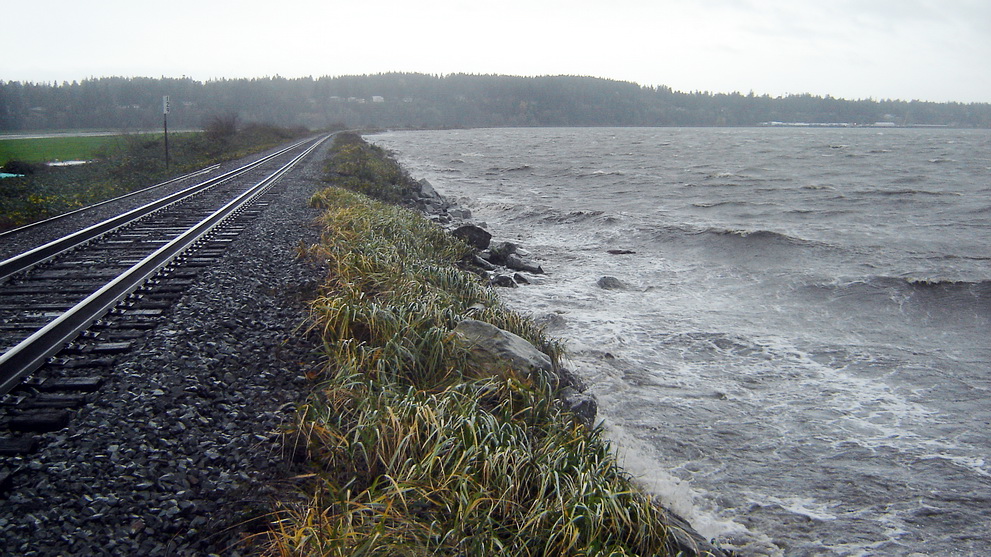Vancouver’s City Council has approved three recommendations to help prepare the city’s vulnerable areas for sea level rise by planning for and implementing coastal flood protection.
The recommendations focus on engagement, development, and design along thec coastline, ensuring sea level rise is considered in future and ongoing developments.
“Vancouver faces very real impacts with sea level rise and we must be prepared,” said Mayor Gregor Robertson. “Vancouver is focused on being among the most resilient, liveable, and green cities in the world which means taking bold action to reduce our environmental impact and adapt to climate change.”
The recommendations come from a report to council and also includes a summary of the most recent Coastal Flood Risk Assessment (CFRA) work, which has provided the city with a thorough understanding of local risks and vulnerabilities to sea level rise, and a high-level understanding of the potential options available to protect and adapt our coastline.
Information from the CFRA work informed the approved recommendations put forward by staff:
- Update city bylaws to ensure new developments are setback from the coastline to allow for future flood protection infrastructure.
- Development of new procedures to guide the design of coastal flood protection infrastructure so that they meet future needs.
- Allocation of up to $500,000 from the city’s 2018 Innovation Fund toward a local sea level rise design challenge that will engage residents to determine the best solutions for each section of Vancouver’s coastline.
Currently, the city is basing its coastal adaptation plans on the provincial government’s sea level rise projections of half-a-meter by 2050 and a meter by 2100, meaning that 13-square-kilometers of Vancouver’s land could be impacted if no flood management interventions are taken.
Between now and 2100, the City will work with residents and stakeholders to secure flexible and adaptive shoreline solutions for a range of ocean and river levels that enhance Vancouver’s resilience to flooding and deliver many benefits to the community such as recreation, culture, a thriving environment and economic opportunities.
As well, Vancouver City Council has approved $2.8 billion in capital investments to support the renewal of aging assets and investments in new public infrastructure. Investments in existing water infrastructure will receive $399 million, while investments in new water infrastructure will receive $59 million.
In the approval, the city made notable additions in water, wastewater, and drainage infrastructure upgrades in the Cambie Corridor and the rest of the city (funded through a new Utility Development Cost Levy). This funding is a part of the city’s 2019–2022 capital plan.









